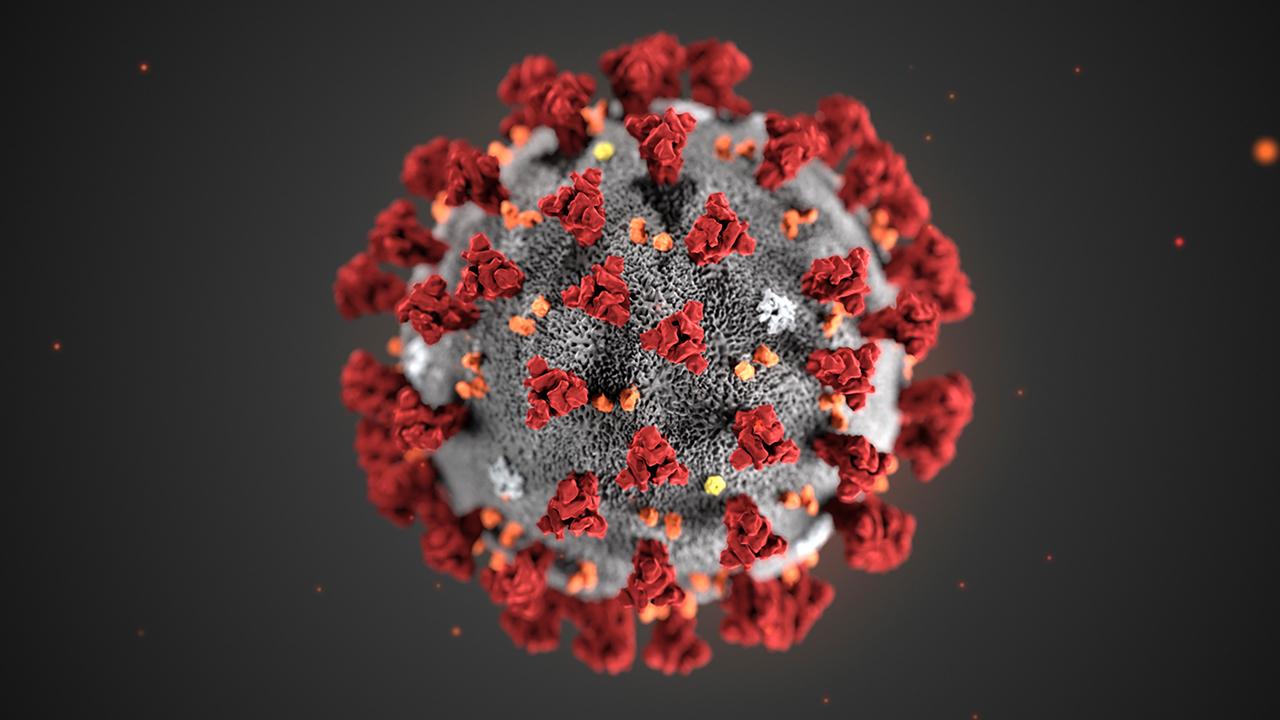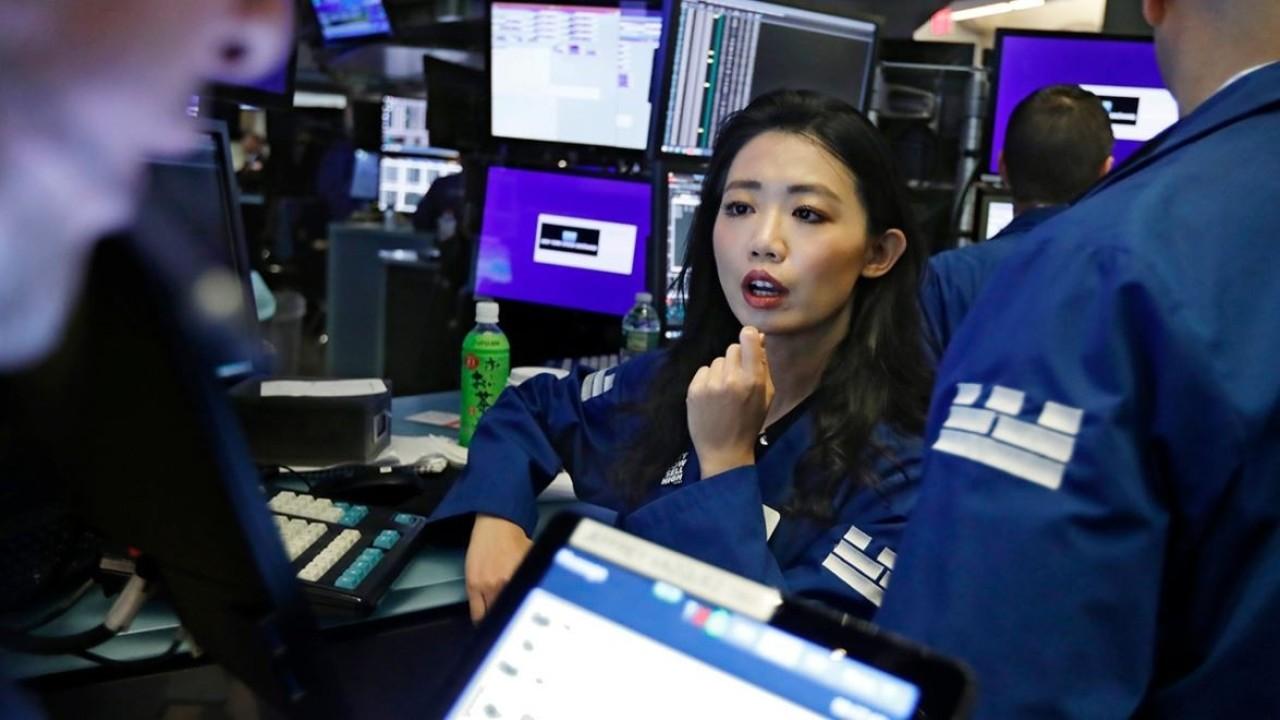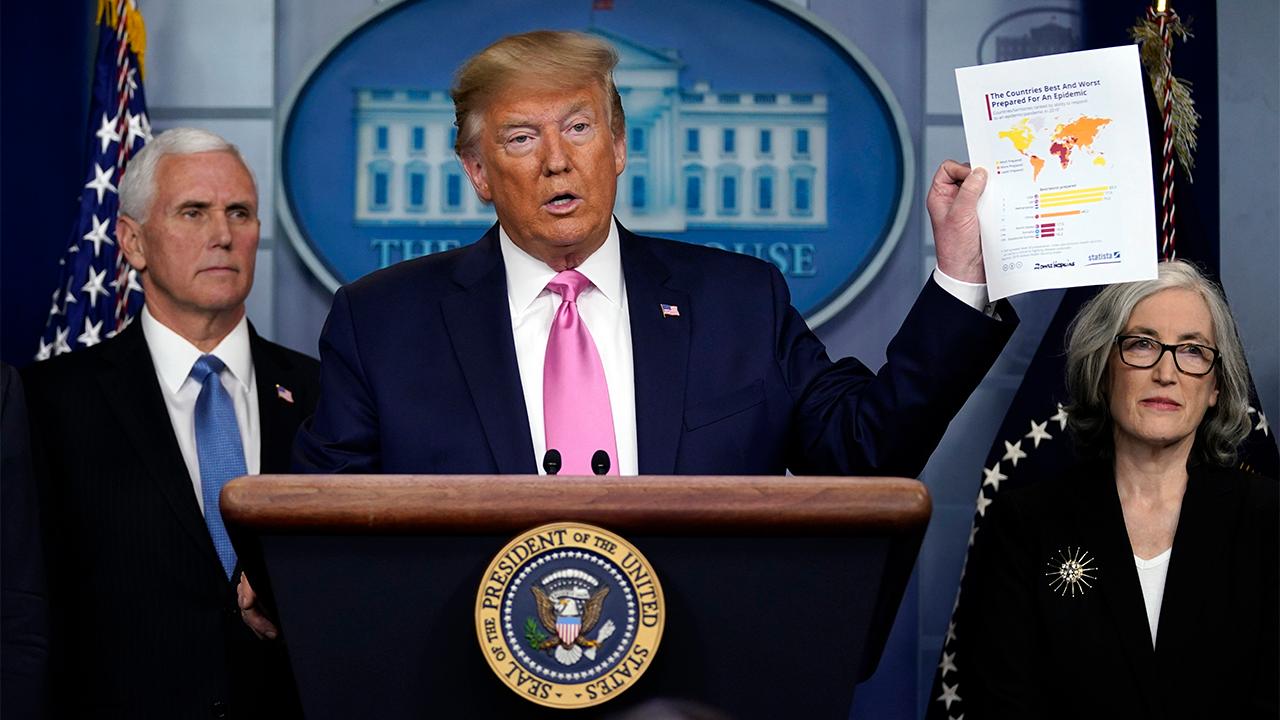Coronavirus threatens global economy but the US will contain the outbreak -- and thrive
There are already strong signs from advanced, free nations in Asia that the economic impact from the disease brewed in mainland China will be limited
As markets fluctuate wildly while investors struggle to grasp the impact of the Wuhan coronavirus, an admonition from the 1981 movie “Stripes” comes to mind: “Lighten up, Francis.”
There are already strong signs from advanced, free nations in Asia that the economic impact from the disease brewed in mainland China will be limited.
STOCK FUTURES FALL ON SKEPTICISM OVER STIMULUS PLANS
For one-half of this writing team, mornings in Hong Kong consist of catching up on what could almost be considered the great American coronavirus freak-out as every new batch of exposures appears to bring fresh rounds of panic to the wide swaths of the general public.
Forecasts of long-term doom from what some of us in Hong Kong and Taiwan call the “WuFlu” can sometimes be portrayed as unstoppable by the liberal media. American stock market volatility drives Asian stock market volatility.
As an American living in Hong Kong, undertaking what were near-weekly trips to Taiwan, it’s hard to describe how embarrassing it is to watch friends and neighbors, who live next to the disease’s source, China, effectively contain the spread of the coronavirus while the United States, which benefits from population separation and often-better health care, appears to be flipping out.
CORONAVIRUS NOT SCARING AWAY MOVIEGOERS
As of Wednesday, Hong Kong has 121 cases, Taiwan has 48, Singapore has 166, and Japan 587. All these countries have by any reasonable estimation contained the coronavirus, and while all are still adding small numbers of cases, the growth rate of infections has dropped to a trickle. In fact, in Hong Kong and Taiwan, recoveries are nearly on par with new cases.
So here’s the point: if Hong Kong, Taiwan, Singapore, Japan, and even South Korea, which is seeing a decrease in spread, can turn things around, why can’t the United States?
In fact, it can and will.
The Trump administration did the one thing that mattered most, as we saw in many of these Asian nations: it closed off travel from China to the United States. Doing so limited exposure and delayed the impact until closer to warm-weather months when respiratory diseases like WuFlu decline.
AMAZON, APPLE, GOOGLE LEAD TECH CORONAVIRUS WHITE HOUSE MEETING
So if we did that correctly--by our count the most important action--then why the hand-wringing over our ability to take other actions?
Are Hong Kong and Taiwanese doctors, many educated in America, better than our doctors?
Are the federal Centers for Disease Control and National Institutes of Health a step behind the Japanese or Singaporeans?
Can the space between homes and people in the United States be less than in Hong Kong or Singapore?
Could it be that Taiwanese are better at washing their hands than Americans?
Yes, the coronavirus is serious, but when did it become a de facto assumption of the American people that Hong Kong, Japan, or Taiwan were better at facing this adversity than the United States?
When did we start accepting the rationale of MSNBC or the New York Times that Americans are on the run when other advanced free nations can demonstrably hold their ground?
It is remarkable to watch the health professionals in Hong Kong, Japan, or South Korea enter infected homes or wards to help the sick.
GET FOX BUSINESS ON THE GO BY CLICKING HERE
Yet, there are individuals who are just as remarkable in America doing exactly the same thing.
Who actually believes American health care and emergency services stand second to other nations?
For the other half of our writing team, the reality of people going about their everyday lives in Colorado is a stark difference from what is conveyed by the mainstream media, especially the left-leaning financial press that has been rooting for a recession since Donald Trump was elected president.
Restaurants, malls, and airports remain busy and the non-travel economy does not appear to be impacted. People here grasp the risk, how to mitigate it, and when to take politically motivated hysteria with a grain of salt.
In Hong Kong, to say the public is in conflict with the government is an understatement. We have nightly street battles between pro-democracy protesters and police, yet each day the vast majority of the city pulls together in its fight against the coronavirus.
We see a battle across Asia against a virus, despite the conflict in Hong Kong, and in Taiwan despite China denying it access to basic information and World Health Organization assistance, that is being won.
America will follow suit with equally good or better results.
Mark Simon is an American executive of Next Digital, which publishes Apple Daily in Hong Kong and Taiwan.
Christian Whiton is a former State Department senior advisor in the Trump and Bush administrations based in Colorado and Washington, D.C.
CLICK HERE TO READ MORE ON FOX BUSINESS






















